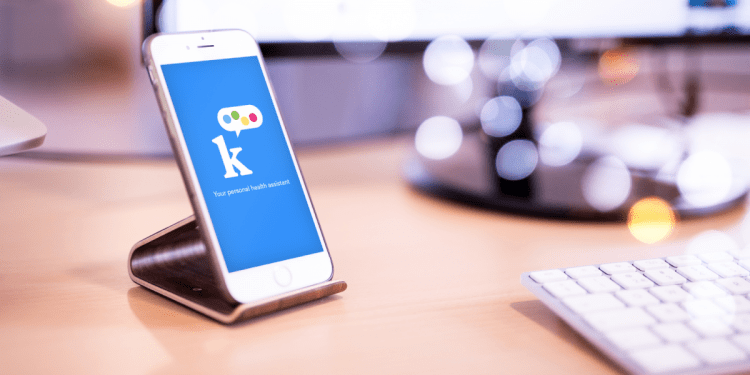Watch all the Transform 2020 sessions on-demand here.
Ever check medical symptoms online? You’re far from alone. The Pew Research Center’s Internet and American Life Project estimates that 35 percent of adults in the U.S. regularly turn to the internet to self-diagnose ailments. Only a fraction of them, however, find the information they’re searching for — such online tools only provide accurate results about 34 percent of the time.
Allon Bloch, previously CEO of Wix and Vroom, thought the industry could do better. Two years ago he cofounded K Health, a Tel Aviv primary care startup with a software platform that takes into account medical histories, the clinical outcomes of millions of people, and the experience of thousands of doctors to deliver treatment information on hundreds of diseases. It today announced that it’s raised $25 million in a series B round led by 14W, with the participation of Comcast Ventures and Mangrove Capital Partners — double its $12.5 million series A raise earlier this year, in July.
It brings K Health’s total funding to date to $37.5 million. As part of the round, 14W managing partner Alex Zubillaga and Comcast Venture’s Shawn Leavitt will join K Health’s board.
Bloch says that the proceeds — which come shortly after K Health’s smartphone app, K, crossed the 500,000-download threshold, at a rate of 10,000 to 15,000 new users a day — will allow it to launch in-app virtual physician visits in early 2019 and “accelerate the intelligence of its self-learning system.” In the months ahead, K Health plans to make available doctors with whom K users aged 18 and older will be able to consult for a fee. Said doctors will review an AI-assisted triage of the patient’s symptoms and diagnose, prescribe, or refer patients as appropriate.
June 5th: The AI Audit in NYC
Join us next week in NYC to engage with top executive leaders, delving into strategies for auditing AI models to ensure fairness, optimal performance, and ethical compliance across diverse organizations. Secure your attendance for this exclusive invite-only event.
Currently, K offers same-day appointment bookings with physicians and complimentary remote consultations in cities where it’s partnered with local health systems.
There’s a wealth of competition in the budding telemedicine market, which some analysts estimate could be worth $29.6 billion by 2022 — Doctor on Demand, HealthTap, PlushCare, Teladoc, and American Well are all competing for a slice of the pie, to name a few. But Block asserts that K Health’s AI-driven approach, combined with its proprietary medical knowledge database, gives it a leg up..
“Today, if you go online and search for something as simple as a cough, you’ll see millions of results, ranging from the common cold to cancer,” Bloch told VentureBeat in an earlier interview. “With K, we use real data from millions of people so you discover and understand the medical outcomes of people like you and have informed conversations with your providers about treatment options.”
K sources from a database of millions of electronic health records and 2 billion “health events” — maladies like nausea, headaches, and vomiting — supplied by Maccabi, Israel’s second-largest health fund. Users start by downloading an app for iOS or Android and answering roughly 20 questions about their age, gender, body mass index, health history, and symptoms. A machine learning-powered backend uses the responses to build a private profile, which it compares to medical insights gleaned from physician notes and charts.
The results page shows a list of outcomes experienced by people in similar health circumstances, along with a percentage indicating the likelihood of each diagnosis. Reports and profiles can be shared with clinicians via a HIPAA-compliant messaging feature ahead of telemedical or in-person appointments, if users so choose.
“There’s so much misdiagnosis — so much overtesting and overtreatment,” Bloch said. “We see [K Health] as a tool that can help to rule out something that’s potentially serious [and] help users take control of the information … [For] people who don’t have the ability to get access to quick care, that’s crucial.”
K Health is funded in part by Maccabi and Morris Kahn Institute for Research and Innovation, the tech incubation arm of Tel Aviv, Israel-based health maintenance organization (HMO) Maccabi Health. It says that any profits from the app will be reinvested into K Health’s database.


